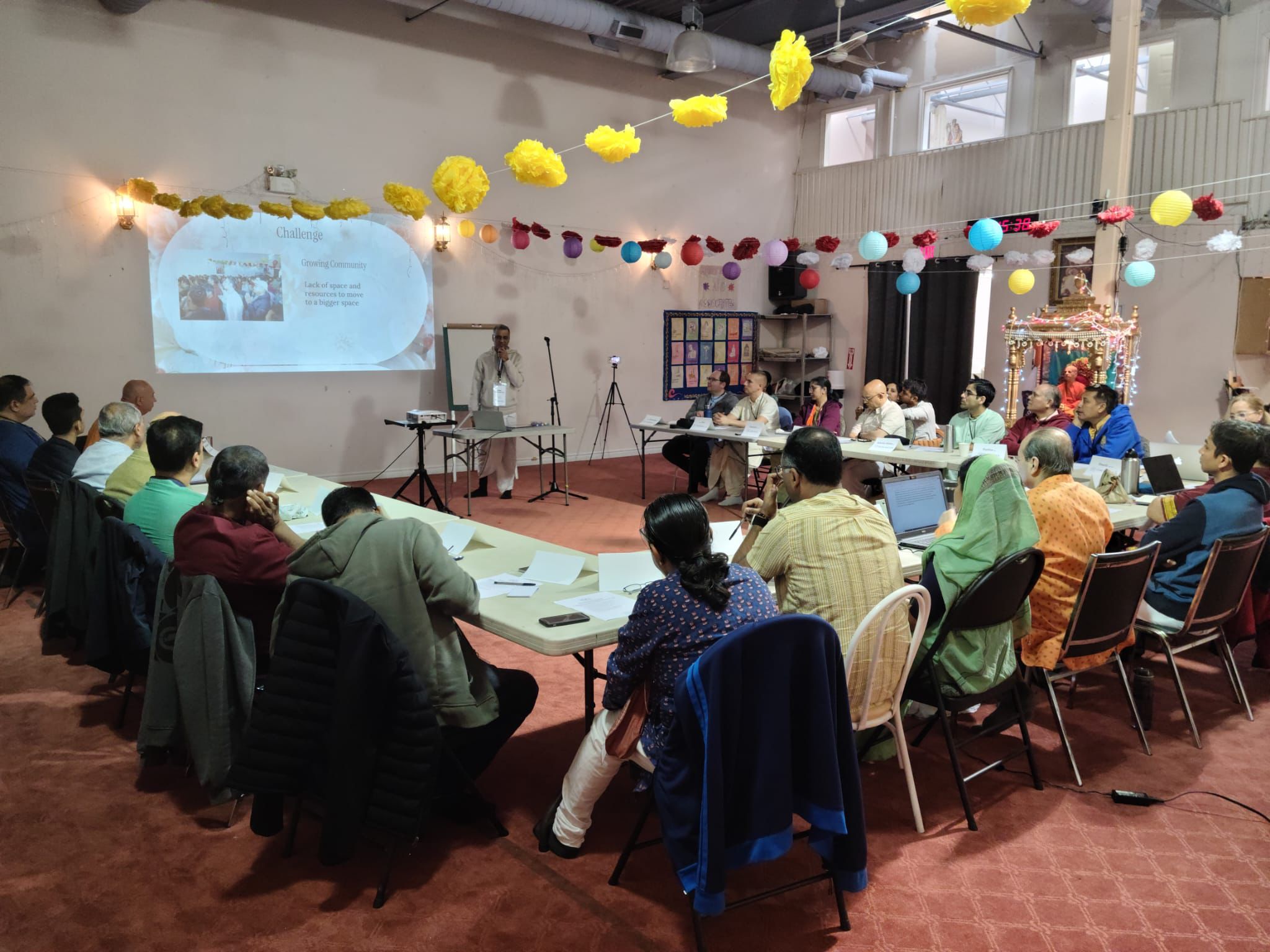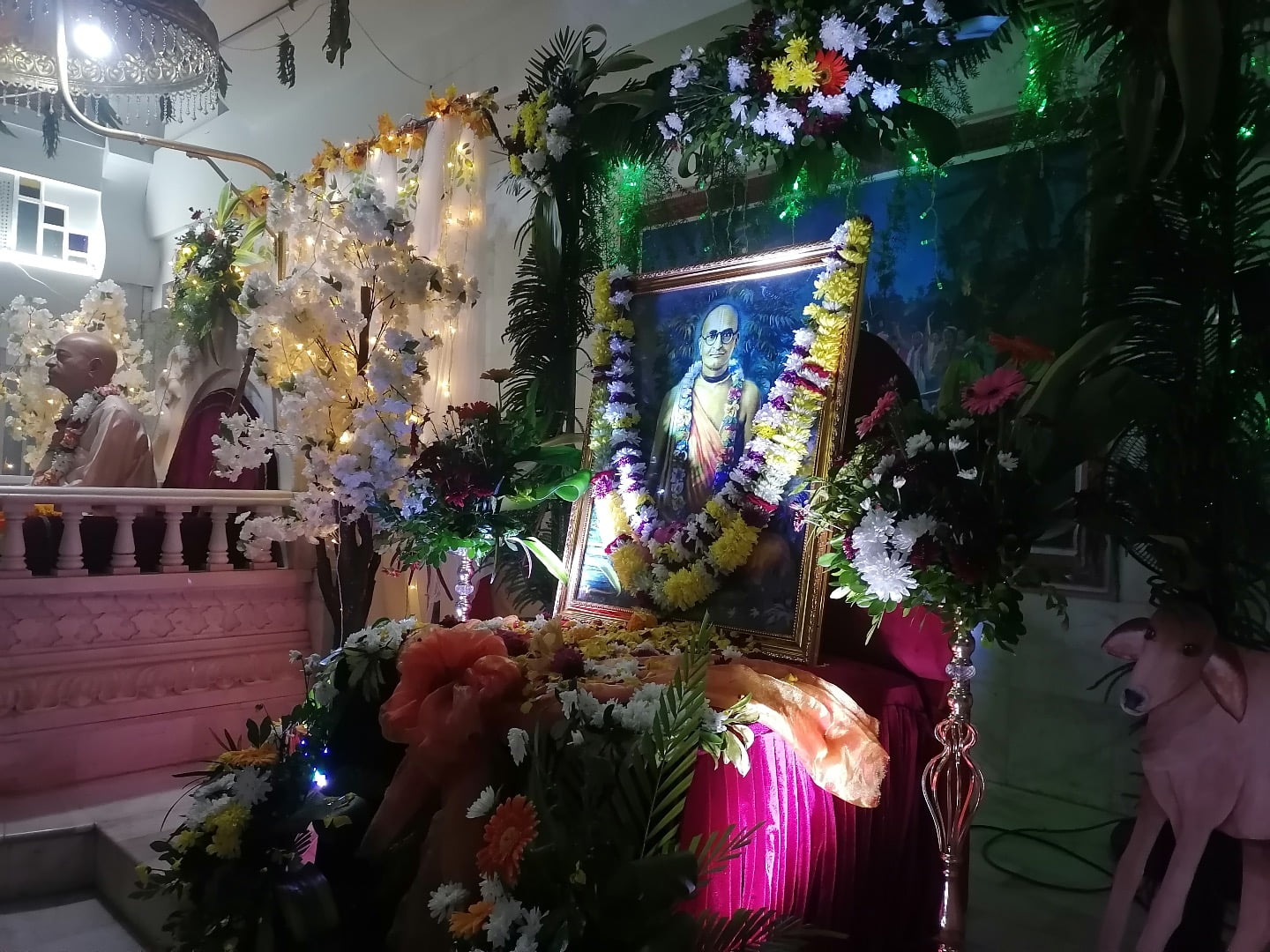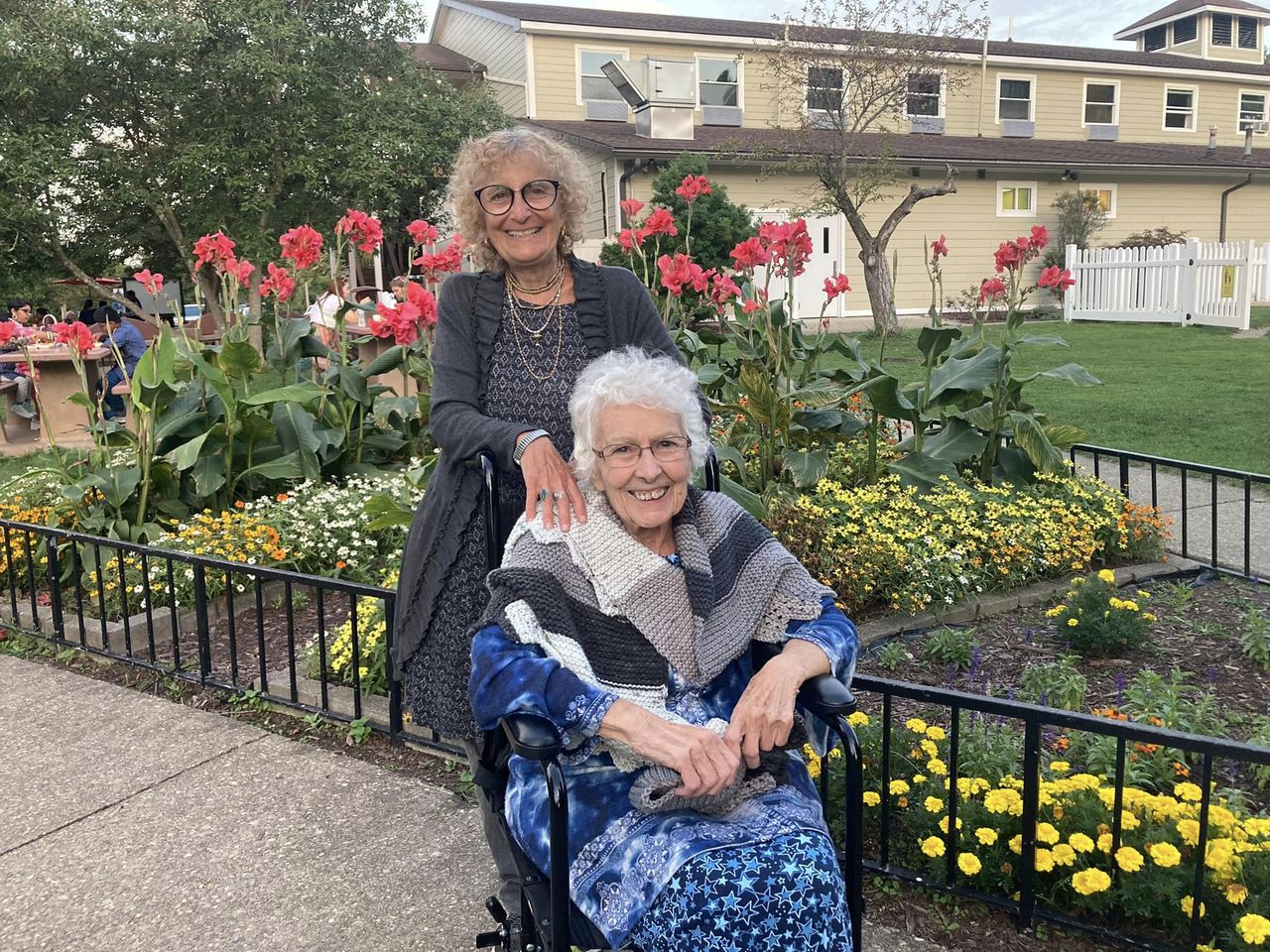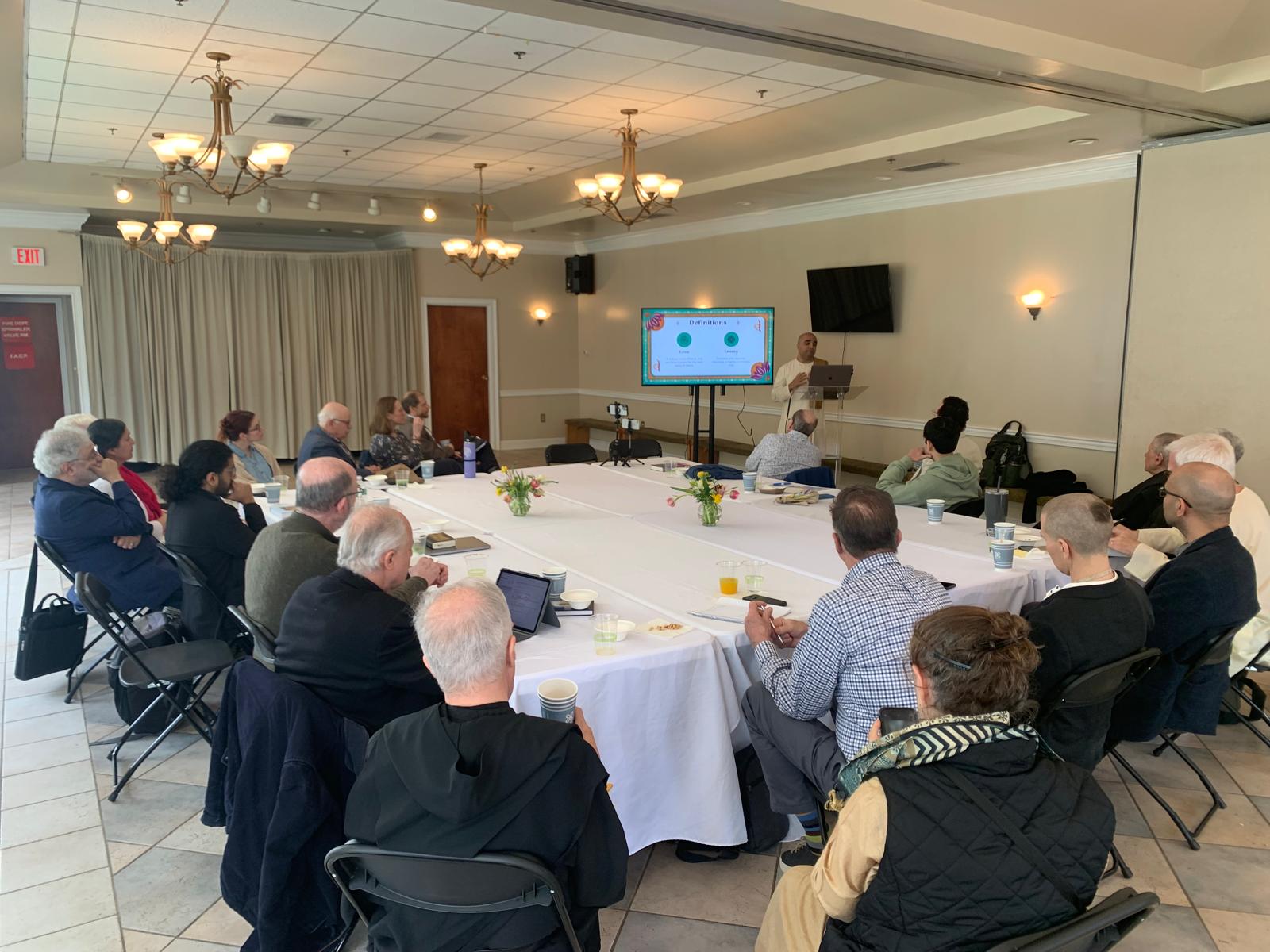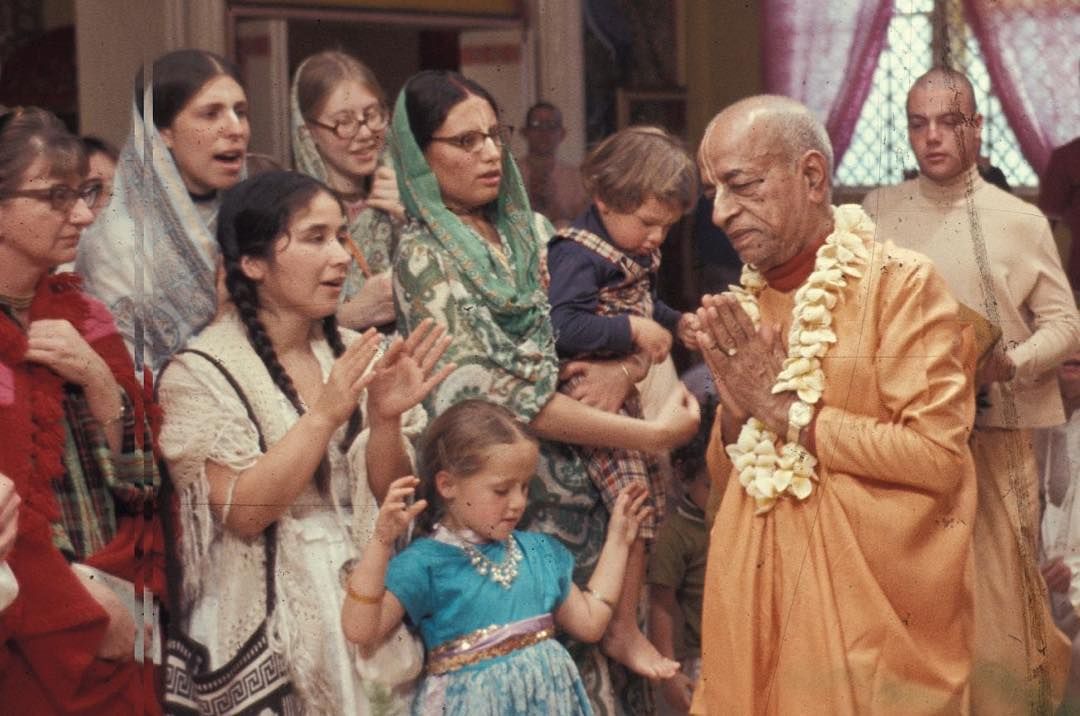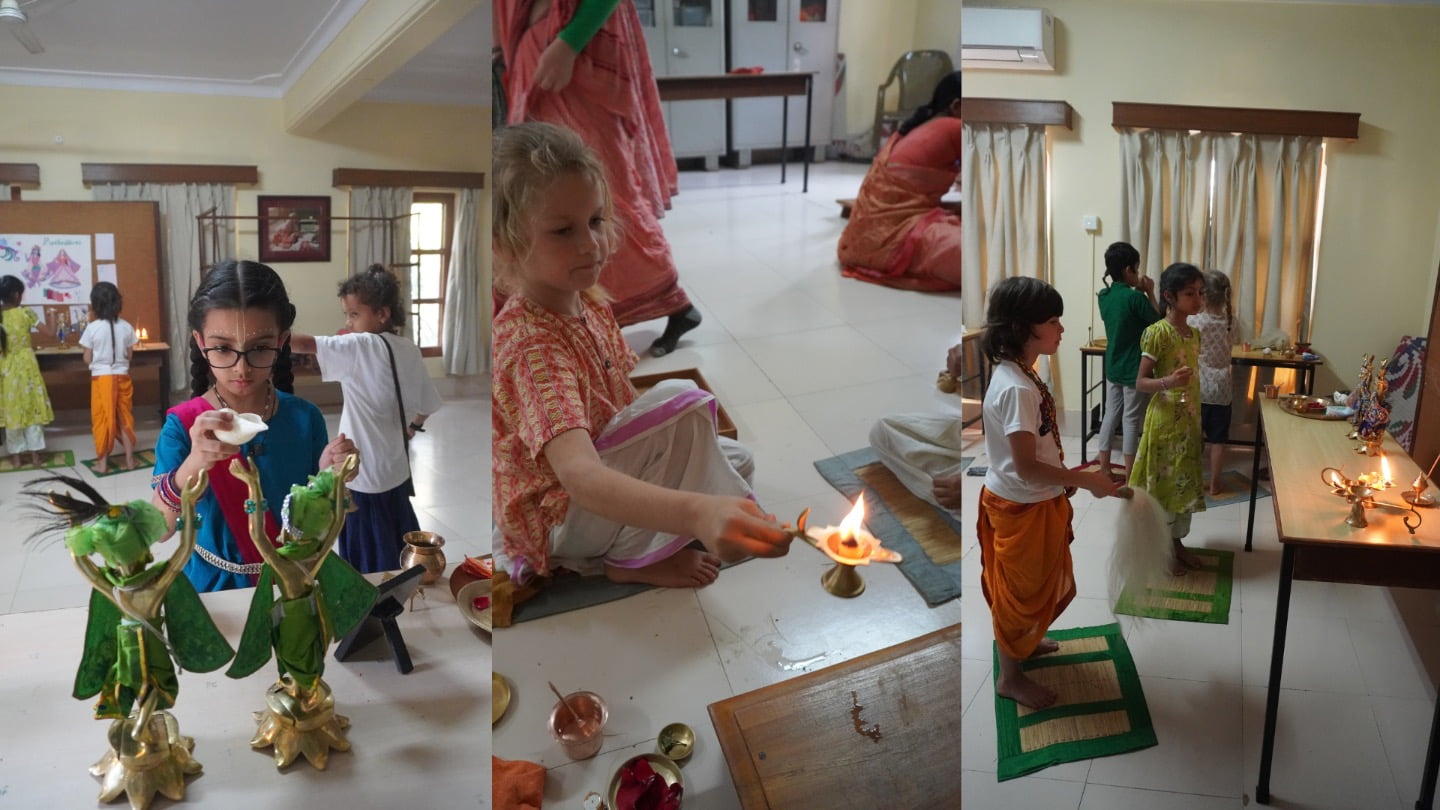Kuli Mela Reaches Siberia and Kazakhstan
By Madhava Smullen | Sep 13, 2008
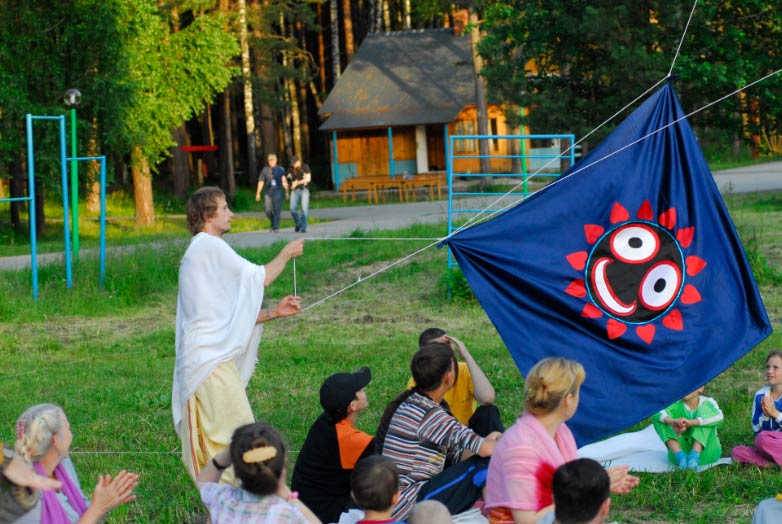
Kuli Mela, the festival to bond and inspire youth (Kulis) who have grown up in the Hare Krishna movement, truly showed its scope and adaptability this year when it reached Siberia.
Held in Tomsk from July 3 – 7, the event attracted 250 young devotees from CIS countries that most westerners have never heard of, and probably couldn’t even pronounce, including Moscow, Ulan Ude, Almaty (Kazakhstan), Novosibirsk, Novokuznetsk, and Krasnoyarsk. “Many imagine that Siberia is a place where bears walk on the streets,” laughs Siberian ISKCON youth Radha-Tattva Dasi. “True, we are rather remote, but the fact that so many people came to our Mela just shows that all devotee youth are bound like one family – a friend is a friend everywhere, in every town and village.”
The festival was organized by five enthusiastic local youth – Tatyana Stukalova, Kirtana Rasa, Roman Dvaladze, Oleg Lavrenov, Roman Lankin, Lakshman, Sergey Danilenko, and Sasha Filkina. “We attended Moscow Kuli Mela in 2007, where we met Kapila Monet, one of the creators of Kuli Mela,” Tatyana says. “We started to discuss organizing a festival in Tomsk — and suddenly everything just started moving.”
All four days of the festival were saturated with spiritual, cultural and sports activities. Participants got the opportunity to make friends and share their life and spiritual experiences. They also attended varied seminars and workshops, joined enthusiastic chanting parties, took part in evening fire sacrifices and ceremonies, and ate delicious sacred food. Despite uncertain weather and power cuts, nothing could spoil the festive occasion.
Highlights included Mukunda Murari, a Moscow congregation leader, who delighted everyone by transforming his usual persona into that of a hip-hop superstar and delivering a set of philosophical rap compositions. And the night-time kirtan that culminated in hundreds of red-hued candles being released to drift down the river burned itself into everyone’s memory.
“The festival’s motto was ‘Kuli Mela is a family,’” says Ananda dasi, one of the main organizers of Moscow’s Kuli Mela earlier this year. “And all the participants could really feel it. On the last evening, no one wanted to leave. So we stayed up glorifying each other, after which we had an ecstatic kirtan. All of us could feel the mission of Srila Prabhupada spreading throughout the world, and bearing with it the power of the Holy Name and service. Everyone was inspired to take part in spreading it further.”
It’s already happening: ISKCON youth in Kazakhstan are fearlessly organizing a Kuli Mela in Almaty for 2009, despite recent oppression from the government. They aim to make the event a significant one for both their community and for the entire ISKCON CIS. “Kuli Mela is going to draw a lot of attention to the Almaty community and will host a large number of people from outside it,” Ananda says. “So it may even help to change the attitudes and opinions of the wider community.”
“Each Kuli Mela has its own flavor,” she adds. “But I think Kuli Mela in Almaty will be a particularly interesting event, because they are going to make the festival open and attractive for non-devotee youth as well. Kazakhstan devotees are very enthusiastic and active so I’m sure it will be a very bright spiritual experience.”
At least 400 are expected for the groundbreaking event. And with a second event planned for Siberia in 2010, the Kuli Mela juggernaut shows no signs of slowing down. “I think that Kuli Mela can give our movement a real breakthrough in relationships between devotees of different generations,” Ananda says. “It inspires us to serve and to connect with each other in friendly warm relationships without dividing the society by groups, clans or levels.”
She concludes: “The energy from Kuli Mela, from the youth, is what will give our society a second life.”



